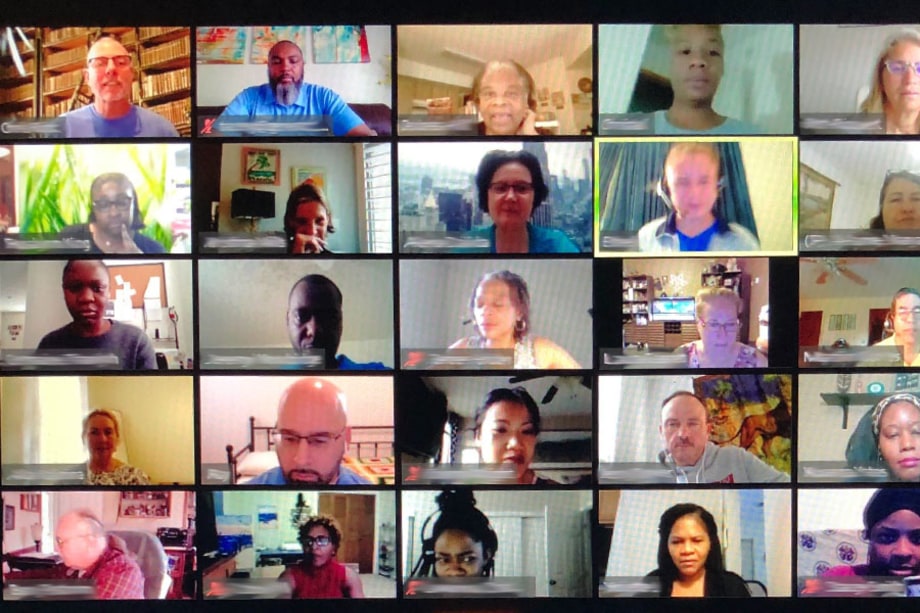
Tips to Get the Most Out of Generation’s Virtual Classroom Experience
In this new learning environment, practice communication, preparation, and persistence to succeed
Virtual learning has revolutionized the way content is delivered to learners. From elementary schools to universities, educational programs all over the world have changed how they deliver instruction. In fact, United Nations Educational, Scientific, and Cultural Organization (UNESCO) estimates that more than 1.5 billion students, or 91 percent of all enrolled learners worldwide, have been out of school due to the coronavirus pandemic and according to a national poll by Education Week, nearly all schools in the U.S. are now delivering content online or remotely — including Generation USA. We too have shifted our model from mostly in-person classes to a virtual environment. And while these new opportunities in learning will provide participants with clear and varied pathways to complete technical training and soft skills (or what we call, Behavioral Skills and Mindsets/BSMs) we thought we’d gather some tips for learners on how to stay connected and be successful in Generation’s new learning environment.
Prepare and personalize your tools and schedule
BSMs: Personal Responsibility, Proactiveness, Communication
The flexibility of online learning is oftentimes more appealing, with more time to complete class assignments on your own and the ability to choose your own settings. However, it can be easy to lose interest or become bored. It’s crucial to have a schedule or routine (outside of class time) and set up your technology in advance. Include in your schedule times to check-in with your classmates, instructor, and career coach. Have a routine and communicate early and often with the instructors and classmates. This will play a huge role in the overall quality of your experience.
Tips:
- Set course notifications to go to the device you use most (computer, phone, tablet) in the format you prefer (email, text, alert).
- Each week, schedule a check-in with your instructor and career coach of 15 minutes as well as approximately 30 minutes to respond to messages, ask questions, and interact with others.
- Create a schedule to help you determine the most effective times to work and stick to it.
- Create an Online Work Plan to set and create and track your goals every time you log in.
Engage everyone, often
BSMs: Proactiveness, Communication, Teamwork, Future Orientation
Communication is a key part of creating class culture. Becoming a community of online learners can be an enriching experience and while you cannot be together in-person, the adaptability of the virtual environment makes it easier to engage with your instructor and classmates. During class, interact, share, create, and collaborate on case studies, role-plays, and group projects. This may mean using social media and other familiar apps in ways that you have never used before, such as using WhatsApp to share notes with classmates. Contribute to discussions and share your work — it can help you and your classmates learn, be proactive, and become engaged members of the course’s community.
Tips:
- Download the mobile versions of online tools to ensure you can communicate and participate from anywhere, at any time.
- Use browser bookmarks to make sure your online course is visible and easily accessible.
- Participate in discussions, send messages, or share assignments and class notes. Try to leave comments once or twice a week related to course content.
- Leverage social media and chat tools to connect personally with your classmates and instructor.
Adjust to an online learning environment
BSMs: Adaptability, Persistence, Growth Mindset
As an online learner, you will face challenges and have to exercise a different set of skills than you did in a traditional classroom environment. You will have to learn new ways to interact with your classmates and may have to use familiar technologies in unfamiliar ways. Try to find solutions on your own before asking for help. If you are having technology issues, do not fear the Google search! It’s very unlikely you are the first person to face that particular tech issue. See if others online have solved the problem. Being proactive and persistent can help you successfully learn and master new technologies.
Tips:
- Learn about the multimedia capabilities of your course. How do you share video, audio, or images?
- Find a buddy, either someone in your course or in your life who can be a reliable source of support — both technical and personal.
- Try to anticipate issues that you may have with course work or technology.
Adaptability, communication, proactiveness, teamwork, personal responsibility, future orientation, persistence, and growth mindsets will all play key roles throughout your online learning experience. You will have to learn and practice new ways of studying, interacting, and working. Remember that you can improve with practice over time (growth mindset). Sometimes what seems like an obstacle can become a great opportunity. As a new Generation learner, use these tips and build effective online habits. It can change your online learning experience to be a meaningful learning opportunity, benefitting your future career for many years to come.
By Akil E. Kennedy







